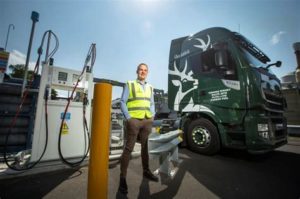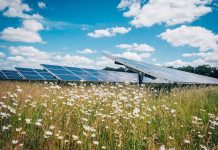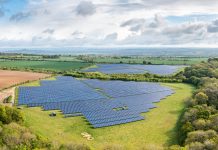Drinks giant Diageo is hoping the spirit is willing among Scots planning officials, as it seeks permission to build a 4MWp solar farm to power one of its biggest bottling plants.
On-site generation from a ground-mounted PV plant on part of its 150-acre site at Leven, Fife, would aid the plant’s annual production of up to 40 million cases of premium spirits.
E.On and contractors Emtec Energy are the plant’s partners in installing and commissioning on-site self-reliance.
“We have been on the journey to environmental sustainability at Leven for many years, “ said Gavin Brogan, the plant’s operations director. “This solar array would take us to another level”.
Diageo, Scotland’s biggest exporter of whiskies such as Johnny Walker, J&B and the Cardhu single malt, is committed to achieving zero emissions by 2030. It will do so by, among other measures, planting 1 million trees in Scotland.
Twenty three per cent of Diageo’s £12.7 billion net annual sales come from whisky brands.
The corporation’s ‘Society 2030: Spirit of Progress’ strategy commits it to 100% renewable energy across all operations by the end of the decade. It has also committed to partnering with suppliers to reduce its indirect carbon emissions by 50%.
Souped up, on electric soup
Beating the drum too, – if not the dram – , for renewables putting a charge into the water of life, single malt rivals Glenfiddich have converted the first of its twenty Iveco delivery trucks to run on biogas digested from distillery leftovers.
Mash detritus from the Dufftown distillery in Speyside is feedstock for the low carbon fuel. Each lorry will save up to 250 tonnes per year in emissions, on runs between the firm’s four Speyside sites.
William Grant & Sons, Glenfiddich’s parent, has pioneered the AD technology and is offering it to other road hauliers.

Distilleries director Stuart Watts told local media: “It has taken more than a decade for Glenfiddich to become the first distillery to process 100% of its waste residues on its own site, then to be the first to process those residues into biogas fuel to power our trucks”.



